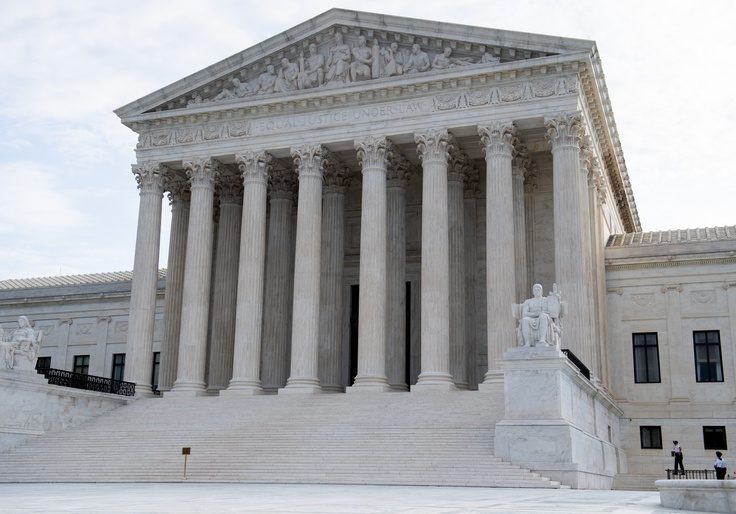A group of Montana mothers will take their religious discrimination battle to the Supreme Court on Wednesday in a landmark case that could affect millions of schoolchildren.
Teresa Schmit was relieved when Montana state lawmakers passed a tax break for private school donations in 2015. Schmit works two days a week as a counselor, while her husband works full-time at an engineering firm, to send their eight children to Catholic schools. Still, the family's combined income cannot cover the tuition of even one of their children.
"All of the money we have we put toward their education," Schmit told the Washington Free Beacon.
The family relies on private scholarships to cover the difference and hoped the credit for donors would expand such opportunities. Schmit did not count on Montana's Blaine Amendment, which prohibits state and local governments from giving aid to "sectarian schools." The state supreme court cited the provision, which is historically linked to anti-Catholic sentiments in the late 19th century, to strike down the program.
On Wednesday, the Supreme Court will hear oral arguments in Espinoza v. Montana Department of Revenue to determine whether states can prohibit tax credits from applying to scholarships at religious schools while making the credits available to similar secular institutions. The decision could affect the 4 million students who attend religiously affiliated private schools. The case could mark a turning point for the state of religious freedom in the country. If the Supreme Court strikes down Montana’s Blaine Amendment, it could open up constitutional challenges to similar provisions enshrined in the constitutions of 37 other states.
The parents argue that the state court’s decision effectively discriminates against people of faith by denying them access to a widely available public program solely because of their religious beliefs.
"I have a stake in this because I want to support my children through private education," said Christi Rudolph, a Montana native and divorced mother of two. "But the bigger thing is the families that are going to come behind me. I believe every single parent should have an educational choice if they choose to opt out of their public school system."
For many Montanans, the case is not just about larger constitutional principles but the financial bottom line that restricts their educational choices. For the Schmit family, every bit of additional scholarship aid helps.
"For one kid’s education, we wouldn't be able to put groceries on the table. We wouldn't be able to pay our mortgage. So, if it wasn't for the scholarship, you know, I actually don't know what we would do," Schmit said.
The Supreme Court previously heard a similar case concerning a Missouri program that denied improvement grants to a religious school. In Trinity Lutheran Church of Columbia, Inc. v. Comer, the Court ruled 7-2 that the state violated the First Amendment by excluding parochial schools from a neutral education program. The majority emphasized that its decision was limited to the improvement project, rather than "funding or other forms of discrimination."
If the Supreme Court decides to reinstate the tax credit program, the ruling could motivate states to provide even more support for religious schools, expanding access for students across the country, according to Dr. Tim Uhl, superintendent of Montana Catholic Schools.
"If we throw out the Blaine Amendment then suddenly we're going to have a radical transformation of school funding," Uhl said. "We're going to have a radical change in potential for different states.... That's really what's at stake."
Oral arguments are scheduled to begin at 10 a.m.
